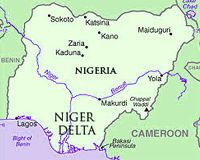 |
Irbil, Iraq (UPI) Sep 22, 2010 Baghdad is again locked in a dispute with Iraq's independence-minded Kurds over ownership of the oil in their semi-autonomous enclave and the Kurds, their political clout waning, look like they are losing. The confrontation has inflamed sectarian and political tensions as U.S. forces withdraw and the country struggles to cobble together a government six months after stalemated parliamentary elections. That in turn threatens to seriously undermine Iraqi efforts to build up the long-neglected oil and gas industry, which will pay for the massive reconstruction needed to restore the country as a key energy producer. "So long as the Kurdistan Regional Government and the national government are conflicting, both sides will lose out -- and the KRG stands to lose out the most," the Middle East Economic Digest cautioned. Kurdistan, which extends across three provinces in northeastern Iraq, contains an estimated 45 billion barrels of oil. The 4 million Kurds say they have no separatist ambitions but they clearly see these reserves as the economic core of an independent state that has been their dream for decades. The central government considers that oil, and most of the revenue it generates, as belonging to the state. The problem is that a national oil law that would regulate the energy industry and how revenues are shared among Iraq's regions has been hung up in the fractious parliament since it was presented in 2007. Political insiders say that given the deep divisions plaguing Iraqi society it looks like staying that way even if a new governing coalition does emerge. "As the stalemate drags on, both the federal government and the KRG appear to have lost interest in getting the hydrocarbons law passed and have pursued their own unilateral development plans. Despite numerous public statements saying otherwise," MEED reported. But the KRG has shunned Baghdad and signed production-sharing contracts with foreign oil companies, without obtaining approval from the federal parliament. Iraqi Oil Minister Hussein al-Shahristani has branded those contracts illegal and blacklisted the companies concerned. In August, the Kurds' Natural Resources Minister Ashti Hawrami acknowledged the KRG was selling surplus oil products to private companies, who then exported the products to neighboring Iran. Baghdad says that the State Oil Marketing Organization is the only authority with the right to export crude oil and its derivatives. Earlier this month, al-Shahristani cut supplies of some refined products such as kerosene and diesel fuel to Kurdistan by 50 percent. Under the postwar constitution, the KRG receives 17 percent of all Iraqi oil revenues. "As a country with 115 billion barrels of proven reserves, the region's share of the profits could be considered more than sufficient," MEED commented. "But the KRG is keen to avoid conceding too much power to the capital." It may find its problems are about to get worse. As the key U.S. ally in Iraq, the Kurds, who joined the Americans in fighting Saddam Hussein, had considerable political clout in the new Iraq. But their influence as kingmakers between the competing political bloc dominated by the Shiite majority has waned. After the March 7election, it was believed the Kurds would play a kingmaker role. But six months later and still no government, that's clearly not the case. "All of a sudden, Baghdad's hand has been strengthened and it is now in a position where it can toughen its rhetoric toward the region, without fear of losing power," MEED observed. The current prime minister, Nouri al-Maliki, a Shiite who appears to have the backing of both the United States and Iran to head the new government, backs al-Shahristani all the way in seeking to curb the Kurds. Maliki's principal rival, former premier Iyad Allawi, hasn't taken a public position on the issue, presumably to avoid alienating the Kurds whose support he may need. But political insiders say he opposes allowing the Kurds' oil deals. And the landlocked Kurds have another big problem: No export outlet. They don't have access to the 500-mile pipelines that carry crude from the northern Kirkuk oilfields -- which they claim as their own -- to the Ceyhan terminal on Turkey's Mediterranean coast. Although the Kurds had little choice but to agree to hand over oil revenues to the state, not one barrel of Kurdish oil has yet gone to Ceyhan.
Share This Article With Planet Earth
Related Links Powering The World in the 21st Century at Energy-Daily.com
 Three French oil workers kidnapped off Niger Delta
Three French oil workers kidnapped off Niger DeltaParis Sept 22, 2010 Pirates boarded an oil industry supply vessel off Nigeria on Wednesday and seized three French seamen, in the second hostage drama for French energy workers in West Africa in less than a week. The men's employer, French maritime services firm Bourbon, and the French foreign ministry said they had contacted the kidnapped workers' families and were working with Nigerian authorities to secure t ... read more |
|
| The content herein, unless otherwise known to be public domain, are Copyright 1995-2010 - SpaceDaily. AFP and UPI Wire Stories are copyright Agence France-Presse and United Press International. ESA Portal Reports are copyright European Space Agency. All NASA sourced material is public domain. Additional copyrights may apply in whole or part to other bona fide parties. Advertising does not imply endorsement,agreement or approval of any opinions, statements or information provided by SpaceDaily on any Web page published or hosted by SpaceDaily. Privacy Statement |